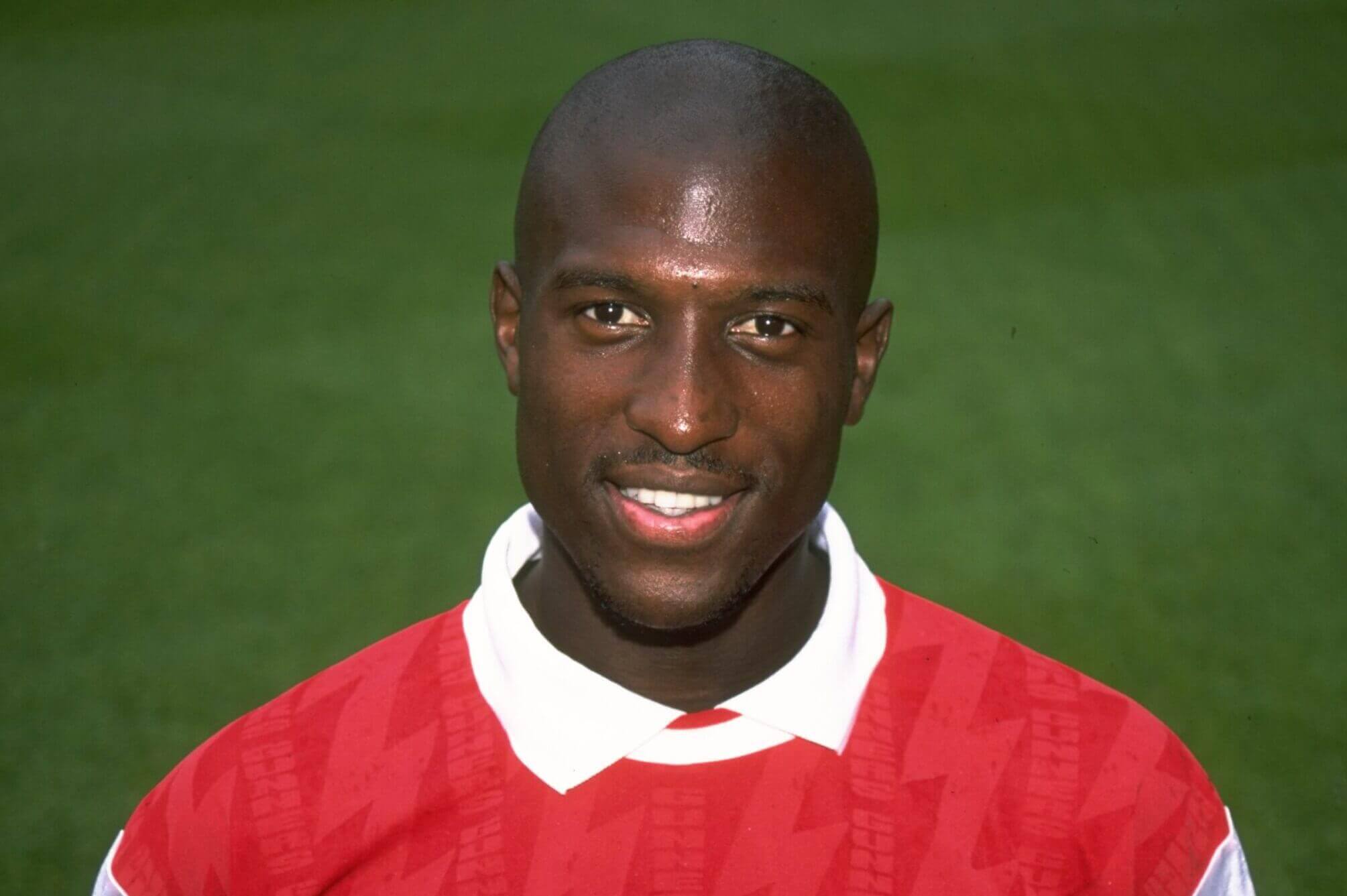Now Reading: Arsenal Legend Kevin Campbell’s Tragic Health Battle Revealed
-
01
Arsenal Legend Kevin Campbell’s Tragic Health Battle Revealed

Arsenal Legend Kevin Campbell’s Tragic Health Battle Revealed
In a heart-wrenching revelation, the final months of beloved football icon Kevin Campbell have been detailed at a coroner’s inquest, painting a devastating picture of rapid health decline that shocked the sporting world.
The former Arsenal and Everton striker, who still holds the record for most Premier League goals without earning a full international cap, passed away on June 15 last year at just 54 years old after suffering catastrophic weight loss and multiple organ failure.

A Shocking Health Decline
Campbell, once the picture of athletic prowess, experienced an alarming deterioration that saw his weight plummet from 19st 7lbs to just 9st 4lbs in a mere four months—losing more than half his body weight during his battle with severe medical complications.
Manchester Coroner’s Court heard the football legend was ‘desperately unwell’ when first admitted to Manchester Royal Infirmary in January 2024, marking the beginning of a seven-week hospital stay that would be the first of several.
Dr. Robert Henney, MRI consultant pathologist, told the inquest: “When Mr Campbell came in, he was already desperately unwell… Many people would not have survived to the point he did. His physical fitness allowed him to get that ill before being admitted.”

A Complex Medical Battle
Upon his initial hospitalization, doctors discovered Campbell had suffered a stroke caused by a blood clot on his heart, which in turn triggered kidney failure and liver damage. Medical teams initially investigated whether a viral infection—possibly contracted during Campbell’s holiday in Papua New Guinea—might have been the culprit, but this was ruled out.
After undergoing kidney dialysis treatment, Campbell’s condition temporarily improved, allowing him to be discharged in early March. However, tragedy struck when he was readmitted just two months later on May 17, by which time his weight had dramatically fallen to just 9st 4lbs.
The hospital’s consultant physician, Professor Peter Shelby, expressed concern at the inquest: “Why was it that a man who a few months before was a picture of health had so suddenly deteriorated? There should have been a little more curiosity.”
The Rare Infection That Went Undetected
Further investigations in early June finally confirmed a diagnosis of infective endocarditis—a rare and serious infection of the heart’s inner lining. An internal hospital investigation later acknowledged this infection could have been diagnosed earlier.
Despite this admission, the inquest heard Campbell would “almost certainly” not have been fit enough to undergo the high-risk open-heart surgery required had the infection been detected sooner. Prof Selby stated bluntly: “We are not talking about simple surgery. People would have concluded that surgery was nothing other than taking a fatal option.”

A Football Legacy Remembered
Kevin Campbell’s illustrious career saw him score 59 goals in 224 appearances for Arsenal, where he helped secure the 1990/91 league title, FA Cup, League Cup, and European Cup Winners’ Cup.
His journey continued with successful spells at Nottingham Forest, a season at Turkish side Trabzonspor, and a significant period at Everton from 1999 to 2005, where he served as captain under manager Walter Smith. Campbell concluded his playing career with stints at West Bromwich Albion and Cardiff City.
“Our Superstar”: Family’s Emotional Tribute
Harold Campbell delivered a moving tribute to his brother at the inquest, saying: “Kevin was very loved as a football professional, in the media and especially by the fans of the clubs he played for. He was very, very loved by everyone.”
“From a family point of view, he was our superstar from his start in football at 13 years old. Everyone loved him, not only as a professional footballer but as a normal person. His football career was successful but after his retirement, I think everyone sort of got more in tune with his personality – a normal person and he was very, very loved.”

Coroner’s Verdict: A Tragic Natural Cause
Coroner Zak Golombek concluded that while there was a delay in diagnosing Campbell’s infective endocarditis during his second hospital admission, this delay “did not more than minimally contribute to Kevin’s death on the balance of probabilities.”
Recording a verdict of death by natural causes, Mr. Golombek stated: “Kevin died from a naturally occurring illness which very sadly on June 15 reached its natural end.”
Dr. Henney perhaps best summarized the cruel twist of fate that befell the beloved footballer: “Unfortunately, he had two completely separate and unrelated insults to his heart in a short space of time, so he was desperately unlucky.”
As the football world continues to mourn, Campbell’s legacy lives on—not just through his remarkable sporting achievements, but through the warmth and character that endeared him to teammates, fans, and family alike.












